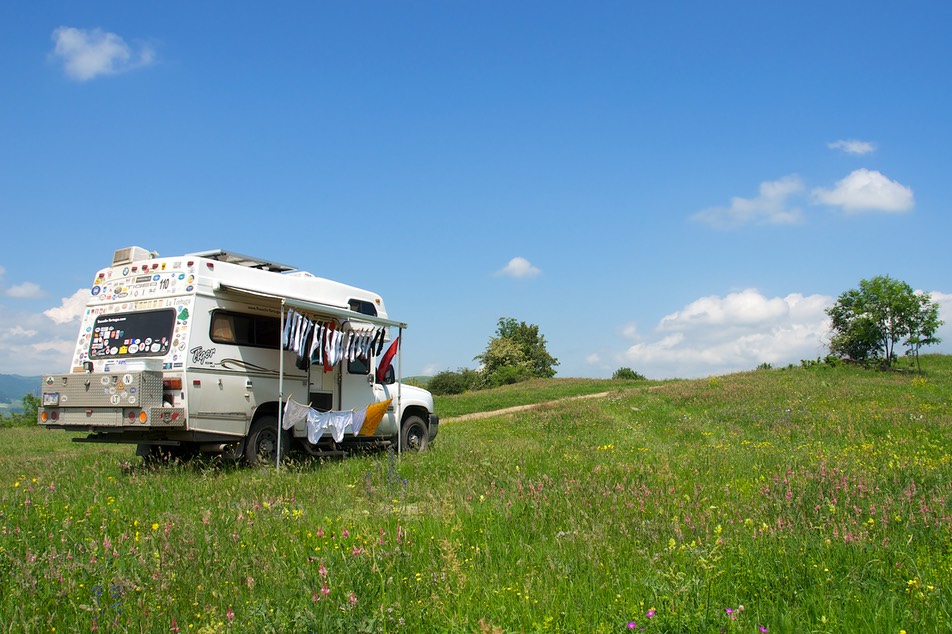Where the Tiger sleeps tonight:
Overnight Stops and Other Useful Information

For several reasons, we prefer to spend as little time as possible in privately owned campgrounds. On the other hand, many travelers would rather stay in campgrounds whenever they are available and think we’re nuts for avoiding them. That’s all OK, thank goodness we aren’t all out there going to the same places and doing the same things all the time. The only important consideration is that you are happy doing whatever it is you choose to do.
If we’re in the US or Canada, we’re happy to spend time in public campgrounds such as National Parks and Forests, State, Province or County parks, Corps of Engineers parks, etc. But we also spend a lot of time just out on our own, stopping pretty much wherever we find ourselves at the time, even stopping early in the day if we find a particularly nice location. Armenia 2013
When we’re off in another part of the world we try to learn how things are done there by talking to other travelers and researching their reports of where they’ve stayed. In some countries or areas it may be safer to stay in actual campgrounds when they are available. In many places, the publicly owned facilities we love so much in Canada and the US are not to be found in other countries, but like everything else, it varies.
Camping Logs & More
- Central America Costa Rica, El Salvador, Guatemala, Honduras, Nicaragua, Panama
- South America Argentina, Chile, Colombia, Ecudor, Peru, Uruguay
- Western Europe Austria, Belgium, France, Germany, Italy Luxembourg, Netherlands, Portugal, Spain, Switzerland
- Great Britain & Ireland England, Ireland, Scotland & Wales
- Central & Eastern Europe Albania, Armenia, Bosnia-Herzegovina, Bulgaria, Croatia, Czech Republic, Greece, Georgia, Hungary, Macedonia, Montenegro, Poland, Romania, Serbia, Slovak Republic, Slovenia, Turkey
- Scandinavia & Baltic States Denmark, Sweden, Norway, Finland, Estonia, Latvia, Lithuania, Iceland
- Australia & New Zealand
- Africa Morocco, Namibia, South Africa, Swaziland, Lesotho, Botswana, Zambia, Tanzania, Malawi
Something else that varies is the availability of information on camping locations. In North America, we are accustomed to the ready availability of books, maps and other resources telling us everything there is to know about places we can camp, both public and private. However, in other countries, this type of information is often not available.
In Central and South America, actual campgrounds of any type are few and far between, so being comfortable finding places on your own is essential. There are almost no printed resources for Central or South America, but we can recommend 99 Days to Panama and Americas Overland as good starting places, though both of these date to 2007 or so. We assume there are now software options for these countries but we can’t help with those. One good resource in this region is our friends Yasha and Jurgen at Dare2Go. We first met them in Ecuador in 2008 and we learned a lot from them. They’ve recently completed a second visit to South America and have current information on their site.
In Europe, both the availability of campgrounds and the need to stay in them changes from country to country, as does the availability of printed resources, but good information is pretty easy to find either online or at area visitor centers. There is an extensive network in Western Europe of overnight stopping points called Aires, Stellplatzë, or Sostas. These are generally run by local municipalities or organizations and provide approved locations for motorhomes to park for the night. They often provide basic services as well. These can easily be researched online and there are numerous guide books available to help you locate them. We used the books available from Vicarious Books and like them very much. Since our time in Europe in 2010-2015 the popularity of phone/tablet apps has increased greatly but we did not use them when we were there.
In both Australia and New Zealand camping options are plentiful, ranging from established campgrounds to wild camping in most areas. In addition to using information from other travelers, we found smartphone/tablet apps that worked well for us in both countries. In New Zealand, Rankers has an excellent app; while for Australia we used Wikicamps.
In Africa, wild camping is firmly discouraged in most areas so established camp sites are the order of the day. As always, finding information from other travelers is extremely important. We are also using the recommended Tracks4Africa GPS software along with smartphone/tablet apps iOverlander, Maps Me and Pocket Earth, which have been recommended to us by others. These are very useful apps, particularly iOverlander, but we don’t find them as user friendly as those we enjoyed in Australia and New Zealand.
The purpose of these pages is to share with you our own camping logs along with other information such as prices and availability for propane and fuel pertinent to each country we’ve visited. Our logs for Central and South America are based on the time we spent there in 2008-2009. Our logs for Europe cover our travels there during our six year stay in 2010-2015. Newer logs we’ve posted are for 2017-18 in New Zealand and Australia and for 2018-19 in Southern Africa. In addition to links shown on each Camping Log page, you can visit our Links Page to connect to other travelers in order to learn from them and to connect to still more sources.
Wherever you choose to travel and however you choose to camp, we can only hope that you will enjoy your time on the road as much as we do ours. Safe Travels.
“Perhaps travel cannot prevent bigotry, but by demonstrating that all peoples cry, laugh, eat, worry, and die,
it can introduce the idea that if we try to understand each other, we may even become friends.”
~ Maya Angelou